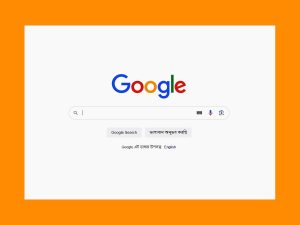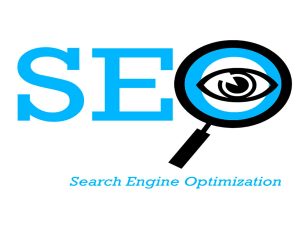How Search Engines Work: Crawling, Indexing, and Ranking
Introduction
Have you ever wondered how search engines like Google know exactly what you’re looking for? When you search for something, thousands—sometimes millions—of pages pop up instantly. But how do these engines find the right websites so quickly? It all comes down to three crucial processes: crawling, indexing, and ranking. These processes allow search engines to comb the vast internet, organise all that information, and show you the most relevant results. Let’s take a closer look at how it all works.
What is Crawling?
Crawling is the first step in this intricate process. It’s like sending out digital scouts, known as bots or spiders, to discover new content on the web. These bots “crawl” across websites, following links from one page to another, much like how you would browse from site to site. Their job is to locate and revisit new and updated pages, ensuring the search engine’s index stays fresh and up-to-date.
How Crawling Works
So, how do these bots operate? When a search engine initiates a crawl, it scans web pages it already knows about. From there, it follows the links on those pages to discover new ones. Think of it like a spider web—one link leads to another, and before long, the bot has covered a massive part of the internet. These crawlers don’t visit every single page daily, though. Instead, they focus on pages that are updated frequently, or that hold significant authority in their niche.
Crawlers also look for other signals that may affect how often they visit a website. For example, a website with lots of fresh content and backlinks from other reputable sites will likely be crawled more often.
What is Indexing?
Once the crawler has discovered new pages, the next step is indexing. If crawling is about finding content, indexing is about organising it. Imagine indexing as sorting through a giant digital filing cabinet. Each page that’s crawled gets analysed and catalogued so that the search engine can quickly retrieve it when someone searches for something relevant.
How Indexing Works
During the indexing process, search engines examine each page’s content to determine its topic and purpose. They analyse everything from keywords to images and metadata, ensuring they understand the page’s topic and purpose. Search engines then decide how each page should be categorised and stored in their vast database—this is their “index.”
If a page isn’t indexed, it won’t appear in search results. It’s as simple as that. This is why websites must ensure their content is easy to crawl and index. Pages with complex structures or those hidden behind login screens often have difficulty getting indexed.
What is Ranking?
Once a page is crawled and indexed, it can appear in search results. But how does a search engine decide where to place it in the results list? That’s where ranking comes in. The ranking determines which pages appear first, second, third, and so on, based on relevance to the searcher’s query. The goal is to give users the best possible answer to their search query.
Key Ranking Factors
Search engines consider a wide range of factors when determining rankings. Here are some of the most important:
- Keywords: Pages with content closely matching the searcher’s query tend to rank higher.
- Backlinks: Websites that have earned backlinks from authoritative sites signal trustworthiness to search engines, boosting their ranking.
- Content Quality: Search engines prioritise pages with in-depth, valuable content that satisfies the searcher’s intent.
- User Experience: Things like page load speed, mobile friendliness, and ease of navigation all affect ranking.
Technical Aspects of Ranking
In addition to content and user experience, technical elements also affect ranking. Search engines like Google pay attention to:
- Page Speed: Faster websites rank better because they provide a better user experience.
- Mobile Optimization: Since most users search on mobile devices, a site that isn’t mobile-friendly will likely drop rankings.
- Security (HTTPS): Websites with an SSL certificate (HTTPS) are given preference over non-secure sites.
These technical aspects ensure that users can access content quickly, securely, and efficiently, which is crucial in today’s fast-paced digital world.
How to Optimize for Search Engines
So, how can you ensure your site is optimised for crawling, indexing, and ranking? Here are a few tips:
- Create Quality Content: Your content should provide value to the reader and answer their questions thoroughly. Use keywords naturally, but don’t overstuff them.
- Build Backlinks: Reach out to authoritative websites in your niche to earn quality backlinks, which signal to search engines that your site is trustworthy.
- Optimise for Mobile: Make sure your site is mobile-friendly, significantly impacting your rankings.
- Improve Site Speed: Compress images, use caching, and consider upgrading your hosting plan to speed up your website.
- Ensure Proper Indexing: Use an XML sitemap to guide crawlers through your site and ensure that no barriers (like the “no index” tag) prevent your pages from being indexed.
Conclusion
Crawling, indexing, and ranking are how search engines work. Without these processes, finding relevant information online would be like searching for a needle in a haystack. Crawling discovers content, indexing organises it, and ranking determines the order in which it appears in search results. By understanding how these processes work, you can better optimise your website to perform well in search engine results and help users find exactly what they need.
FAQs
1. How often do search engines crawl my website?
Search engines don’t crawl every website at the same frequency. High-traffic sites or those that frequently update their content may be crawled daily, while smaller or static sites might be visited less often.
2. What happens if my site isn’t indexed?
If your site isn’t indexed, it won’t appear in search results. Technical errors, such as a “no index” tag or poor site structure, can cause this.
3. Can I influence how my site is ranked?
Yes! You can improve your ranking by optimising for SEO, including producing high-quality content, earning backlinks, improving site speed, and ensuring mobile-friendliness.
4. What are backlinks, and why do they matter?
Backlinks are links from other websites to your site. They serve as a “vote of confidence” to search engines, showing that your content is credible and authoritative.
5. Can a slow website hurt my ranking?
Absolutely. Page speed is a key ranking factor. If your website loads slowly, users are likely to leave, and search engines will notice, which can result in a lower ranking.






